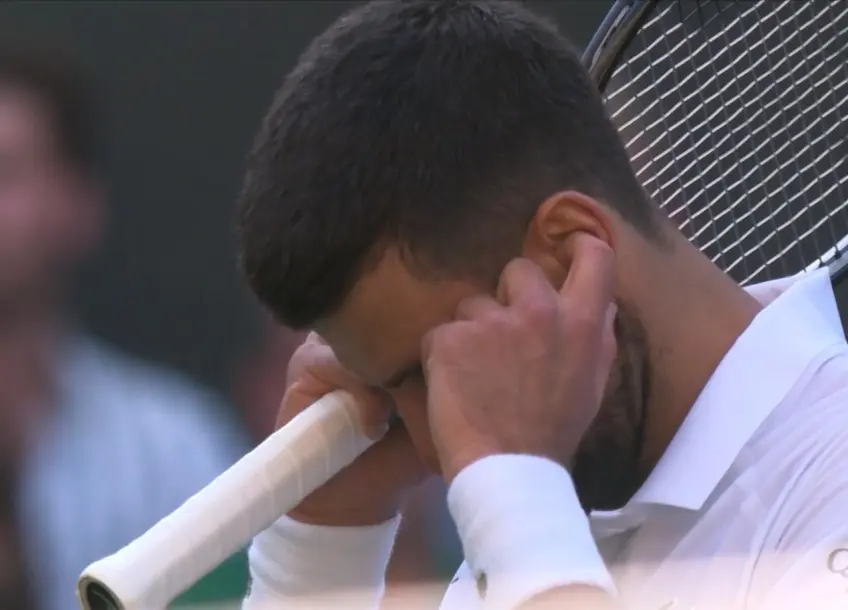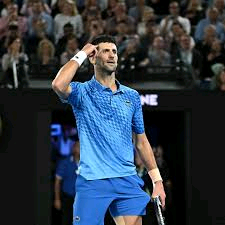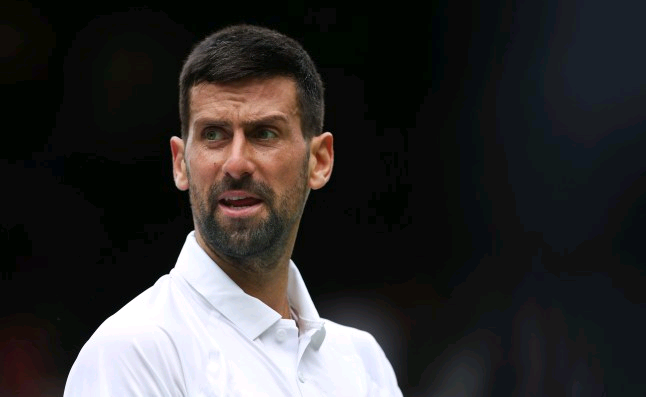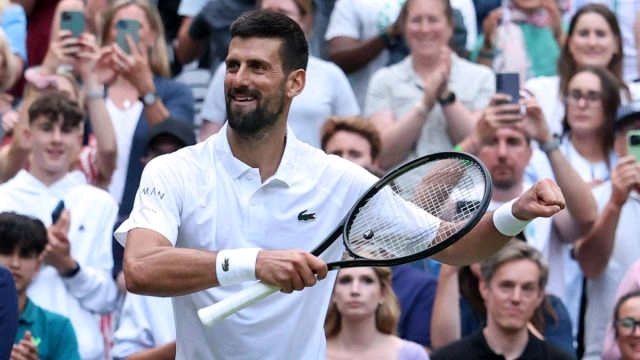Certainly! Here’s a comprehensive and detailed article on the topic:
—
**Famous Coach on Novak Djokovic’s Jannik Sinner Loss: “Demonstration, Not Victory”**
*In the world of professional tennis, matches are often more than just a battle of skill and endurance—they are lessons, demonstrations of strategy, resilience, and the evolving nature of the sport. Following Novak Djokovic’s recent loss to Jannik Sinner, many in the tennis community have reflected on what this result signifies, especially from the perspective of renowned coaches and analysts. One prominent coach, whose insights have shaped many top players, has offered a nuanced interpretation of the match, emphasizing that this was more a demonstration than a victory for Sinner.*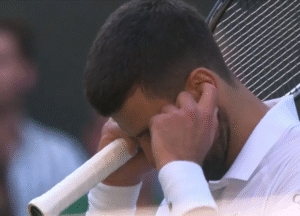
The Context of the Match
Novak Djokovic, a titan of tennis with a record-tying number of Grand Slam titles, faced off against the rising Italian star Jannik Sinner in a highly anticipated encounter. Known for his resilience, tactical intelligence, and relentless consistency, Djokovic was widely considered the favorite. On the other hand, Sinner—only in his early twenties—has rapidly gained recognition for his powerful groundstrokes, exceptional court coverage, and mental toughness.
The match drew global attention not only because of the players’ rankings but also due to the contrasting styles and the narrative of progression and dominance. Djokovic’s experience and mastery were pitted against Sinner’s youthful exuberance and potential for upsets.
The Outcome and Its Significance
In what was considered an unexpected result, Sinner defeated Djokovic in a hard-fought, emotionally charged contest. The victory was celebrated as a significant milestone for Sinner, marking his first major scalp against a player of Djokovic’s caliber. However, the broader analysis, especially from seasoned coaches, suggests that this was more than just a straightforward victory—it was a demonstration of elements that can shape the future of tennis.
The Perspectives of a Renowned Coach
One of the most respected coaches in professional tennis, whose approach and training philosophy have influenced multiple top-tier players, provided an insightful commentary on the match. Preferring to remain anonymous for the purpose of candid analysis, the coach emphasized that:
“What we witnessed was not merely a victory for Sinner, but a demonstration of potential—an exhibition of how a young player can challenge the established order through strategic insight, mental resilience, and tactical adaptability.”*
A Demonstration of Tactical Maturity
The coach highlighted how Sinner’s game plan was meticulous and strategic. Instead of relying solely on power, he employed varied shot selection, mixing deep slices, drop shots, and precise angles that disrupted Djokovic’s rhythm. The demonstration lay in Sinner’s ability to adapt mid-match, exploiting Djokovic’s tendencies and forcing him out of comfort zones.
Psychological Resilience
Djokovic’s experience often gives him an edge in high-pressure situations. However, Sinner’s composure under intense moments was remarkable. The coach pointed out that this mental fortitude was a key demonstration of how emerging players are learning to handle the psychological demands of top-tier competition. It’s a demonstration of the new generation’s capacity to challenge veterans, not through victory alone, but through mental toughness.
Strategic Variability as a Sign of Growth
The loss for Djokovic was not due to a lack of effort or skill but perhaps a recognition of the evolving landscape of tennis. Sinner’s ability to vary his play, disguise intentions, and maintain relentless focus exemplified the strategic growth of younger players. It was a demonstration that the game is moving toward more multidimensional approaches.
A Lesson in the Evolution of Tennis
The coach underscored that this match reflected broader trends—the increasing athleticism, tactical sophistication, and mental resilience of the younger generation. Djokovic, a symbol of dominance for years, now faces a new challenge: adapting to an evolving sport where demonstrations of potential can sometimes surpass outright victories.
Broader Implications for Tennis
This match served as a microcosm of the shifting dynamics in professional tennis. The veteran players, once seemingly unbeatable, are now being challenged more frequently by players who combine physical prowess with tactical intelligence. The demonstration of Sinner’s potential signals that the sport is entering a phase where resilience, adaptability, and strategic diversity are as crucial as raw power.
For coaches and future players**, this match is a blueprint—showing that mastery is not solely about winning but about demonstrating growth, understanding, and readiness to challenge the old guard.
The Philosophy of “Demonstration, Not Victory”
The coach’s phrase, “demonstration, not victory,” encapsulates a perspective that transcends the immediate result. It emphasizes the importance of Learning from every match Recognizing that even in defeat, players showcase their development.
– **Strategic evolution**: Understanding that tennis is a game of constant adaptation.
– **Mental fortitude**: Building resilience to withstand pressure and challenge expectations.
This philosophy encourages players, coaches, and fans to see beyond the scoreboard and appreciate the deeper narratives at play.
The loss of Novak Djokovic to Jannik Sinner was more than a mere upset; it was a demonstration of the sport’s evolving landscape. The insights from experienced coaches reinforce that such matches serve as valuable lessons—showing how the next generation is shaping the future of tennis through strategic innovation, mental toughness, and resilience.
As Sinner continues to develop, and as veterans like Djokovic adapt to these new realities, the sport stands on the cusp of a new era—one where demonstrations of potential may become the new victories that define the sport’s future.this match was a testament to the ongoing evolution of tennis, illustrating that sometimes, the most meaningful outcomes are not just victories on the scoreboard but demonstrations of growth, strategy, and resilience that inspire the next chapter of the games
